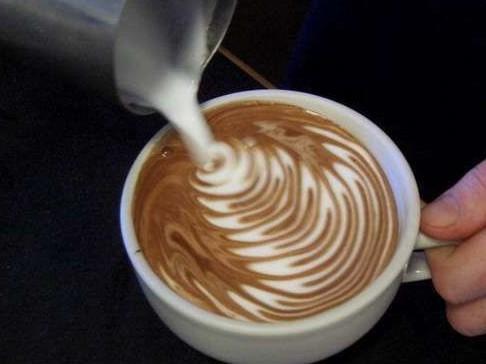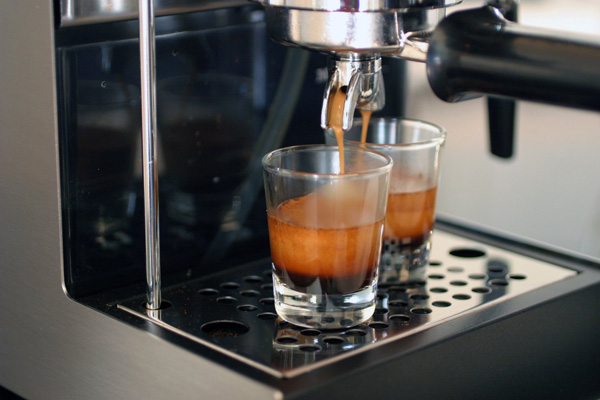SCAE European boutique coffee association explains the fundamentals of baristas
Business card editor

European Fine Coffee Association logo SCAE (full name Specialty Coffee Association of Europe), translated as "European Fine Coffee Association", also translated as "European Special Coffee Association". Founded in London in 1998, it now has more than 3000 members in more than 70 countries and has established SCAE chapters in 35 countries, and the number is growing. SCAE is a professional, democratic, authoritative, innovative international boutique coffee organization dedicated to coffee training and education. it is an organization widely recognized by international organizations around the world to promote boutique coffee.
Functional editor SCAE promotes the concept and knowledge of boutique coffee through their professional training, exhibitions, magazines, high-end forums and six major international coffee competitions.
Education and training
SCAE's training program is designed to meet the needs of coffee professionals in various places. The training courses have been developed and updated by the world's top experts in the coffee industry, covering everything from seed to cup. The specific contents include: coffee basics, coffee raw beans, coffee roasting, coffee cup testing, coffee grinding and production and barista skills 6 big models, in addition to the basics of coffee, there are level 1 and level 2 respectively, with a score of 10 for each first-level course and 25 for the second-level course. When the total score reaches 100, SCAE will issue a SCAE coffee certificate. In 2014, in addition to the basic knowledge of coffee, it is divided into three levels, basic, intermediate and professional.
Exhibitions and conferences
SCAE held the first world boutique coffee exhibition in Monte Carlo in 2000. Since then, SCAE has successfully hosted events in Oslo, Rimini, Lisjak, Athens, Bern, Antwerp, Copenhagen, Cologne, London and Maastricht. The most recent exhibition was in Vienna, Austria, from June 12 to 15, 2012.
Coffee competition
SCAE and SCAA have jointly created six World Coffee competitions in which contestants from around the world have to win domestic competitions before representing their countries in the World Coffee Competition. The six coffee competitions are: the World barista Competition (WBC); the World Coffee pull Competition (WLAC); the World Coffee Cup Test Competition (WCTC); the World hand Coffee Competition (WBRC); the World Baking Competition (WCRC); and the World Turkey Coffee Competition (The Cezve/Ibrik Championship). The final of the next World Championship will be held at the SCAE Coffee World Center in Vienna, Austria, from June 12 to 15, 2012. The World Barista Competition (World Barista Championship, WBC) is the final event of the annual barista competition in various countries and regions, attracting the attention of the world. It focuses on promoting the quality of coffee and the professional skills of baristas. Every year, barista champions from more than 50 countries will complete the production of 4 espresso, 4 cappuccino and 4 homemade coffee drinks in 15 minutes of live display. The WCE certified judges will judge the contestants from the aspects of beverage flavor, professional skills, cleanliness, innovation ability, overall performance and so on. Among them, self-made coffee drinks encourage baristas to give full play to their creativity and use their rich professional knowledge to create personalized drinks that can reflect their own tastes and experiences. In the end, only one contestant can win the title of world barista champion. The World Coffee pull Competition (World Latte Art Championship, WLAC) is a competitive platform that pays attention to artistic expression. Baristas are required to complete the required links of the competition. The classic collocation of espresso and milk shows the barista's creative design on the surface. The competition works will be judged from the aspects of beverage taste, pattern stability and pattern innovation. The top six contestants will enter the final competition. In the final round, contestants will make two optional pattern Macchiato, two optional pattern lattes and two prescribed pattern lattes. The judges will make a comprehensive judgment on the visual effect, innovation, stability, complexity and the overall performance of the barista. The contestant with the highest score will win the world flower competition. The World Coffee Cup Test Competition (WCTC) allows professional coffee tasters to demonstrate their ability to recognize the characteristics of different coffees at a specific time. In the competition, three groups of coffee are discharged into a triangle, and two cups are the same coffee liquid, one of which is different from the other two cups. Contestants can distinguish one of the different cups of coffee as soon as possible through sensory experiences and experiences such as taste and smell. The World hand Coffee Competition (World Brewers Cup,WBrC) is a competition to compete with coffee hand extraction skills, which aims to improve the professional standards of manual coffee extraction skills and services. Contestants can choose any kind of manual coffee extraction tools, such as trickling pot, pressure pot, siphon pot, etc., to show three different coffee drinks to the judges. The fluency of the extraction process and the service process will be included in the evaluation. The essence of this competition is to bring baristas back to their roots and make a cup of high-quality black coffee for customers. The World Baking Competition (World Coffee Roasting Championship, WCRC) will judge the performance of contestants in three aspects, including the rating of raw coffee beans, setting the optimal roasting curve of specified coffee beans and the roasted products of coffee beans. The trick of a real coffee roaster is to make full use of his own experience and knowledge to set and perform a perfect roast. The baked products will be blindly tested by professional judges to determine the final score. World Turkish Coffee Competition (The Cezve/Ibrik Championship). The Turkish coffee maker (Cezve/Ibrik) is a coffee maker made for a specific way of brewing coffee, which is very popular in Eastern Europe, the Middle East and North Africa. The body of the pot can be made of metal or ceramic, the rim of the pot is designed to make it easy to filter out coffee, and its biggest feature is that it has a long handle. The event not only shows Turkey's unique way of brewing coffee, but also promotes a unique cultural tradition in the form of a competition. Participants are encouraged to use their own coffee pots to present this ancient way of brewing coffee in the competition. The next World Turkish Coffee Competition will be held in Athens, Greece, on February 6, 2015.
Field investigation
In order to improve the quality of coffee and learn more first-hand information about the origin of coffee, SCAE organized more than 20 coffee experts to visit India in 2002. Since then, he has visited Brazil, El Salvador, Guatemala, Ethiopia, Rwanda, Colombia, Costa Rica, Panama, Hawaii and other countries and regions and revisited India in January 2012. An article about Indian coffee can be found in the 47th issue of the official SCAE magazine Cafe Europe.
COE
Boutique Coffee Organization is considered by the industry to be the world's largest coffee fair trade organization, by promoting boutique coffee to ensure that those intensive coffee farmers get a better return. The activity that best reflects this goal is the COE (CUP OF EXCELLENCE) project, which is the best coffee competition in the world.
Certified trainer for SCAE China
Name
Area
Basic knowledge
Raw bean
Sensory organs
Grinding extraction
Baking
Barista technique
AST
Examiner
Contact information
Wang Wei
Kino
Fesson
Beijing
Beijing
Changsha
★★
★★
★★
★
★
★
★
★
★
★★
★★
★★
★
★
★
★★★
★★★
★★★
★
★
★
★★
★★
★★
Source; Baidu.
Important Notice :
前街咖啡 FrontStreet Coffee has moved to new addredd:
FrontStreet Coffee Address: 315,Donghua East Road,GuangZhou
Tel:020 38364473
- Prev

The origin of coffee flower how to make a cup of coffee flower better?
In fact, there is no very clear literature on the origin of coffee flower. Coffee flower only knows that in Europe and the United States at that time, coffee flower was the difficult professional technology displayed during the coffee show. Such innovative skills, the difficult technology shown, greatly shocked the coffee industry at that time, and was well received by the public from the very beginning.
- Next

Introduction of various methods and utensils for extracting coffee-the basis of coffee introduction
Various coffee extraction methods and utensils American coffee machines are used for people who are not sensitive to caffeine and like to have a cup occasionally. It tastes lighter and less fragrant, and it is closer to American coffee. According to the advice and instructions, you can get the coffee you want, usually with boiled beans. The Dali coffee machine is fast and can serve restaurants with a large number of people.
Related
- What is the meaning of lactic acid fermentation with coffee bean treatment?
- How to judge the state of foam by sound?
- How does the latte pull out the unicorn pattern? Come to get for a little trick to improve the flower pull!
- Will flower pulling affect the taste of the latte?
- Do you know the history of coffee?
- The difference between honey treatment and sun washing what is raisin honey treatment?
- What kind of milk can a novice use to make coffee foam to keep the foam longer? The correct method and skills of milking tutorial sharing
- Why do washed coffee beans taste sour? Flavor characteristics of washed Coffee
- Introduction to the skill of how to practice the size and height of water injection around the circle of hand-brewed coffee
- How do beginners practice coffee flower drawing from scratch?

